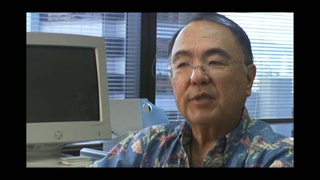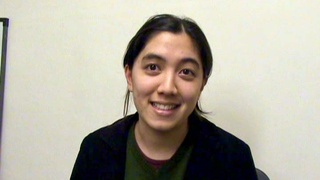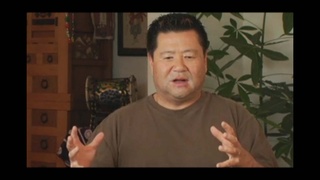Interviews
Taiko as a family activity
Well, I think my having involved from a family perspective definitely gives me the roots to—for me philosophically—to want to have taiko be part of the family. With my husband having been part of the group, what happened was that we started to attract people who wanted to do it as a family activity. And it might’ve been a two-fold thing. It could’ve been that they saw us doing it as a family activity, so they would join up as a family activity. But, there were some members in our group that they wanted their child to do something cultural, but they got involved somehow because of their attraction to it after a while. And there was several of our members that had been introduced that way. So, their child started, they became involved. Some of the children now have left the group, but they’re still involved. And I think our group is unique in that we do have a lot of family members doing taiko together. It’s not just one family member.
Date: July 9, 2004
Location: Hawaii, US
Interviewer: Art Hansen, Sojin Kim
Contributed by: Watase Media Arts Center, Japanese American National Museum
Explore More Videos

Playing traditional gagaku while creating an identity
Senshin Buddhist Temple minister and co-founder of Kinnara Taiko.

Taiko as self-expression
Co-founder and creative director of San Jose Taiko

A “principally-based” taiko group in England creating a global taiko community
Co-founder and creative director of San Jose Taiko

Learning Japanese at school and at home with family
(b.1951) Co-founder and managing director of San Jose Taiko.

Defining a Taiko player
(b.1951) Co-founder and managing director of San Jose Taiko.



Being accepted as biracial family
(b.1944) Founder of Kobayashi Group, LLC

Memories of railroad workers who stayed at family's prewar hotel in Spokane, Washington
(b. 1923) Chick sexer


Growing up with Japanese language and values
(1925 - 2018) Nisei educator from Hawai‘i

Japanese American taiko is not Japanese taiko
(b. 1949) Musician and arts educator and adminstrator.

Parents didn't accept me playing taiko in the beginning
(b. 1949) Musician and arts educator and adminstrator.


